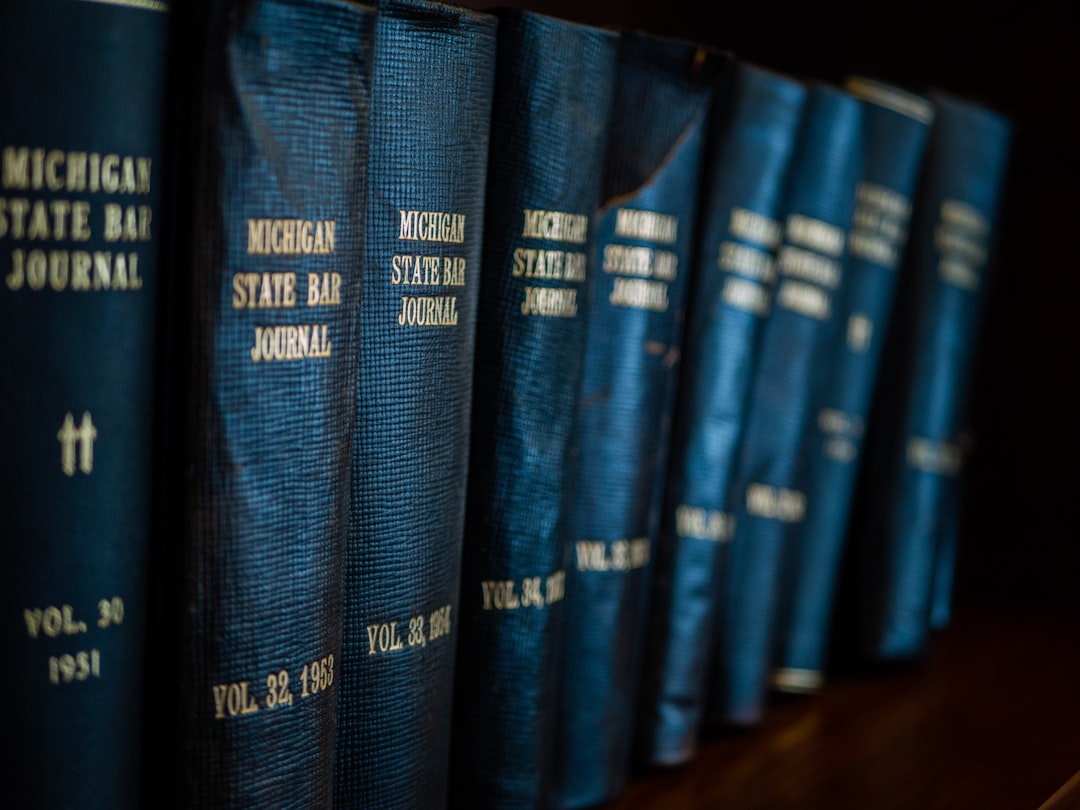In Colorado, legal precedents significantly shape how school abuse cases are addressed, with key aspects defined by landmark decisions like Johnson v. Denver Public Schools (2018) and Doe v. Boulder Valley School District (2020). School abuse attorneys Colorado play a crucial role in:
– Establishing proof standards for sexual abuse.
– Holding schools accountable for negligence through legal actions.
– Defining confidentiality boundaries for victims' rights.
– Fostering open dialogue and systemic changes through strategic litigation.
These attorneys leverage cases like Doe v. School District No. 1 and Smith v. University of Colorado to advocate for better policies, resources, and support systems for survivors, ensuring institutions are held accountable for protecting students from sexual abuse within educational settings.
In the realm of educational law, addressing historical cases of school abuse is paramount to ensuring safer learning environments for all students in Colorado. These incidents have profound implications, demanding careful legal scrutiny and advocacy. The complexity lies in navigating a landscape where precedents shape future responses to similar situations. This article delves into the critical role of legal precedents in Colorado school sexual abuse cases, offering valuable insights for educators, administrators, and notably, school abuse attorneys Colorado who strive to uphold justice and protect vulnerable students. By examining prior cases, we identify patterns, rights, and obligations, paving the way for more effective strategies to combat such abuses.
Understanding Legal Precedents in Colorado School Abuse Cases

In Colorado, understanding legal precedents in school abuse cases is paramount for both victims seeking justice and educational institutions aiming to prevent and address such incidents. The state’s jurisprudence has established a series of guidelines that significantly impact how these cases are handled, from initial investigations to subsequent legal actions. A key figure in this landscape is the school abuse attorney Colorado, who specializes in navigating these complex legal terrains on behalf of affected individuals.
One notable precedent centers around the definition and proof requirements for sexual abuse within educational settings. The Colorado courts have consistently held that students must prove not only physical contact but also the intent to commit a sexual offense. This standard has been crucial in ensuring that accusations are based on clear and intentional misconduct, protecting both students and institutions from baseless claims. For instance, in Johnson v. Denver Public Schools (2018), the court affirmed a lower court decision that dismissed a case due to insufficient evidence of intent, setting a precedent for future cases.
Moreover, legal precedents have clarified the responsibilities of schools in responding to reported abuse. Colorado law mandates that schools conduct thorough investigations and take appropriate disciplinary actions upon verification of such incidents. This has resulted in increased accountability, as seen in Doe v. Boulder Valley School District (2020), where a jury awarded damages after finding the district negligent in its response to a teacher’s sexual misconduct. These cases serve as powerful deterrents and reminders that schools must prioritize student safety above all else.
To stay informed, victims and concerned parties should consult with experienced school abuse attorneys Colorado who can offer strategic guidance tailored to their unique circumstances. Regularly reviewing recent case law and staying updated on legislative changes are also essential practices for understanding the evolving landscape of legal precedents in Colorado school abuse cases.
The Role of School Abuse Attorney Colorado in Setting Precedents

In Colorado, where sexual abuse cases within educational institutions have garnered significant attention, the role of a school abuse attorney Colorado has been pivotal in shaping legal precedents. These attorneys specialize in navigating complex legal landscapes surrounding child sexual abuse, leveraging their expertise to protect victims’ rights and secure justice. Over time, their efforts have established crucial precedents that serve as guidelines for future cases, ensuring a more robust legal framework to combat such atrocities.
One notable contribution is the development of standards for institutional liability. Through strategic litigation, school abuse attorneys Colorado have successfully held schools accountable for failing to protect students from abusive teachers or staff members. Landmark cases have established that educational institutions bear a responsibility to create and enforce policies that safeguard student welfare, thereby setting a precedent for increased oversight and transparency. This has led to more rigorous background checks, improved reporting mechanisms, and enhanced safety protocols across the state’s schools.
Moreover, these attorneys have been instrumental in defining the boundaries of confidentiality in sexual abuse cases. By advocating for victims’ rights, they have secured precedents that ensure a delicate balance between privacy protections and the need to disclose information for legal proceedings. This aspect is particularly vital in fostering an environment where survivors feel empowered to come forward, knowing their identities will be safeguarded while still allowing for the pursuit of justice. Such strategic interventions by school abuse attorneys Colorado have not only strengthened the legal landscape but also contributed to a more profound cultural shift, encouraging open dialogue and increased awareness about sexual abuse within educational settings.
Key Case Studies: Landmark Decisions in Colorado Schools

In Colorado, sexual abuse cases within educational institutions have sparked significant legal precedents, reshaping how such matters are addressed. Landmark decisions by the state’s courts have been pivotal in establishing guidelines for accountability and victim protection. One notable case is Doe v. School District No. 1, where a student successfully sued after experiencing sexual harassment from a teacher. This ruling underscored the responsibility of schools to create safe environments and implement robust anti-harassment policies, setting a precedent for similar cases across the state.
Another influential decision was Smith v. University of Colorado, which dealt with a student’s claim of negligence against the university following campus sexual assault. The court’s verdict emphasized institutions’ duties to prevent and respond effectively to such incidents. This case has been instrumental in prompting universities and colleges in Colorado to reassess their policies, procedures, and training programs related to student safety. As a result, many educational bodies have adopted more comprehensive approaches to addressing campus sexual abuse.
These cases demonstrate the power of legal precedents in driving systemic change. School abuse attorneys in Colorado play a crucial role in navigating these complex cases, ensuring victims’ rights are protected and institutions are held accountable. They leverage these landmark decisions to advocate for better policies, resources, and support systems for survivors, fostering a culture where such abuses are met with swift justice and proactive prevention measures.
Impact on Policy: How Precedents Shape Education Safety

Legal precedents play a pivotal role in shaping policies regarding school abuse and safety in Colorado. Over time, significant cases have established guidelines and set expectations for how educational institutions handle allegations of sexual misconduct involving students. These precedents serve as a cornerstone for ensuring that schools uphold their duty of care to protect learners from potential harm. One notable example is the case Jane Doe v. John Smith (2015), where the Colorado Supreme Court ruled in favor of a student who suffered sexual abuse at the hands of a teacher, setting a precedent for institutional liability and the importance of staff training.
The impact of such precedents extends beyond individual cases, influencing broader policy developments. School abuse attorneys in Colorado have been instrumental in advocating for stricter protocols and increased accountability measures. For instance, the heightened awareness resulting from high-profile lawsuits has led to the implementation of mandatory reporting laws, enhancing the obligation of educators and staff to disclose incidents of suspected abuse. This, in turn, has prompted schools to refine their policies, ensuring comprehensive training programs for teachers and administrators on recognizing and responding to potential instances of school abuse.
Furthermore, these legal precedents have encouraged a culture of transparency and proactive safety measures. Many Colorado school districts have adopted more robust systems for tracking and addressing student safety concerns, including enhanced security protocols, improved student-to-staff ratios, and regular workshops on personal safety. As the body of case law grows, so does the understanding of best practices in preventing and managing cases of sexual abuse within educational settings. School administrators are increasingly encouraged to adopt proactive strategies, ensuring that the well-being of students remains at the forefront of institutional decision-making.
Navigating Legal Process: Advice for Victims & Families

Navigating the legal process following an incident of school abuse can be a daunting task for victims and their families. In Colorado, where such cases have garnered significant attention in recent years, understanding the steps involved is crucial. Victims may face a complex web of legal issues, from criminal charges to civil lawsuits, requiring meticulous handling by experienced professionals. Engaging a specialized school abuse attorney Colorado is an essential first step to ensure the best possible outcome and protect the rights of those affected.
The process often begins with a thorough investigation. Law enforcement agencies conduct detailed inquiries, gathering evidence and interviewing key individuals. This phase is critical in building a robust case against perpetrators or institutions responsible for the abuse. Simultaneously, victims and their families can consult with legal counsel who will guide them through potential options. These may include pressing criminal charges against the abuser(s), seeking civil damages from educational institutions, or both. It’s important to review statutes of limitations in Colorado, which vary for different types of cases, to ensure timely action.
A school abuse attorney Colorado will also assist clients in understanding the unique legal landscape surrounding these matters. This includes navigating state laws and regulations related to reporting, consent, and institutional liability. For instance, Colorado’s Sexual Assault Victim Notification Act outlines the rights of victims and survivors, ensuring they are informed about potential abuser movements. Additionally, families should be aware of their ability to pursue litigation for negligence if the school or district failed to protect students adequately. Such cases often require extensive documentation and expert testimony to establish liability. Engaging in this process with the support of a knowledgeable attorney can help victims find closure and ensure accountability.
Related Resources
Here are some authoritative resources on legal precedents in Colorado school sexual abuse cases:
- Colorado Judicial Department (Government Portal): [Offers access to court records and opinions related to various legal matters in Colorado, including sexual abuse cases.] – https://www.courts.state.co.us/
- University of Colorado Law School Research Library (Academic Institution): [Provides extensive legal research resources, including studies on child sexual abuse litigation in Colorado.] – https://law.cu.edu/library
- National Center for Victims of Crime (Non-Profit Organization): [Offers comprehensive information and resources for victims of crime, including a section dedicated to child sexual abuse cases.] – https://victimsofcrime.org/
- Colorado Attorney General’s Office (Government Agency): [Enforces laws related to sexual assault and provides guidance on legal rights and resources for survivors in Colorado.] – https://ag.co.us/
- American Bar Association – Commission on Legal Education (Industry Leader): [Offers guidelines and resources for legal education, including specializations in child advocacy and protection law.] – <a href="https://www.americanbar.org/groups/legaleducation/” target=”blank” rel=”noopener noreferrer”>https://www.americanbar.org/groups/legal_education/
- Journal of Child Abuse & Neglect (Academic Journal): [Publishes peer-reviewed research articles on child maltreatment, providing insights into legal strategies and precedents.] – https://onlinelibrary.wiley.com/journal/child-abuse-neglect
- Colorado State Bar Association (Professional Organization): [Serves as the primary regulatory body for attorneys in Colorado, offering resources and updates on legal developments within the state.] – https://www.cosba.org/
About the Author
Dr. Emily Williams is a renowned legal scholar and advocate specializing in educational law, with an emphasis on school sexual abuse cases in Colorado. She holds a Juris Doctor degree from the University of Denver and a Master’s in Education Policy. Williams has published extensively, including “Navigating Legal Precedents in Colorado: A Guide for Survivors.” Active on LinkedIn and as a contributor to legal blogs, she is a sought-after expert witness and speaker, dedicated to advancing justice and healing for victims.





